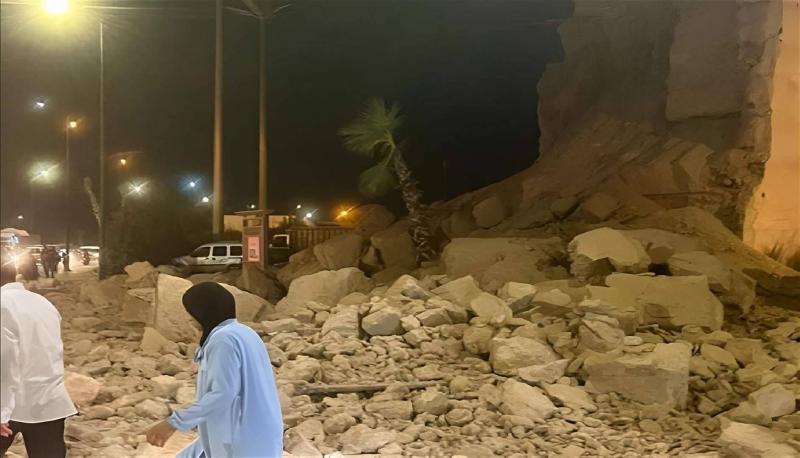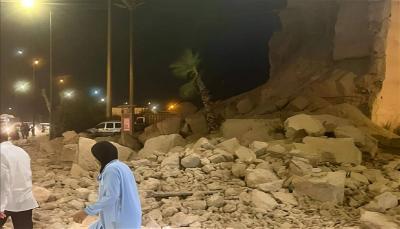A wedding celebration was responsible for saving all the residents of a Moroccan village from the devastating earthquake that struck last Friday, destroying their homes made of stone and mud while they enjoyed Amazigh folk music in an outdoor courtyard. The wedding of Habiba Ajdir (22) and apple farmer Mohamed Bouda (30) was planned for Saturday in his village of Katou, and the bride's family held the traditional ceremony a day earlier, in accordance with customs and traditions.
A video captured by a guest shows the moment the 6.8-magnitude earthquake hit, turning the scene of musicians dressed in local attire playing flutes and goat-skin drums into chaos, darkness, and screams. Bouda recounted on Tuesday, standing next to his wife while still in their wedding attire four days after the earthquake buried their belongings under rubble, that he was scared for his wife as he waited for her in his village. He said, "We wanted to celebrate. Then the earthquake happened. I didn't know whether to worry about her village or my village." He held his wife's hand while speaking. When asked how they met, he shyly smiled and simply said that "fate brought them together." He added that the earthquake shocked Ajdir to the extent that she no longer wanted to talk to strangers.
Residents reported that the impoverished village of Ajdir, Igil Netlghoumt, was reduced to ruins, with many residents now homeless, but unlike other parts of the Adassil region, near the epicenter, there were no fatalities or serious injuries. The earthquake was the deadliest in Morocco since 1960, claiming the lives of over 2,900 people, mostly in remote communities in the High Atlas mountain range south of Marrakech.
People were seen in the video screaming "earthquake" or calling for family members, replacing electric lights with mobile phone flashlights. Only one person in Igil Netlghoumt, an eight-year-old boy named Ahmed Ait Ali Oubla, was injured in the earthquake when a rock fell on his head, causing a laceration; he was seen in the video being carried away from danger by his father.
The wedding party preceded the bride's departure to groom Bouda's home where he was waiting for her in Katou. Despite the disaster, Ajdir traveled to Katou on Saturday with Bouda's brother and his wife, who were at the celebration, leaving behind their wedding gifts, and they all arrived there in the afternoon. The roads were so bad that they had to walk the whole way, and when they arrived, they found extensive damage, but no fatalities.
Additionally, during this social occasion, many lives were saved as villagers paid their condolences at a house that remained standing. Bouda had bought 150 chickens and 30 kilograms of fruit to celebrate the wedding that afternoon, but most of it has now spoiled. He said, "When I arrived, there was no place to sleep. We are just looking for a tent."
Many people fled from the surrounding villages to enjoy the Ajdir family's celebration and share a meal of cooked beef, thereby escaping a potentially fatal fate under the rubble. The bride's father, Mohamed Ajdir (54), had set up a large tent in his yard for the guests, but this tent is now being used as shelter for the villagers, though they say they will soon need sturdier shelter as colder weather is expected later this week.
As he wandered through the village, Ajdir pointed out the signs of chaos that occurred on Friday night, including stylish shoes buried under rubble. The grim fate that the residents of Igil Netlghoumt escaped was evident just a few kilometers down the winding mountain road to Marrakech, where the village of Tikht was almost completely destroyed. No house remained standing, and about 68 people died among the village's 400 residents.
Despite the survival of the Igil Netlghoumt residents, they are still in desperate need of assistance, and some are seen walking down the mountain to seek help from authorities. All survivors in Katou are sharing their meager supplies. Mohamed Ajdir said, "The village is a big family. We share everything we get."




